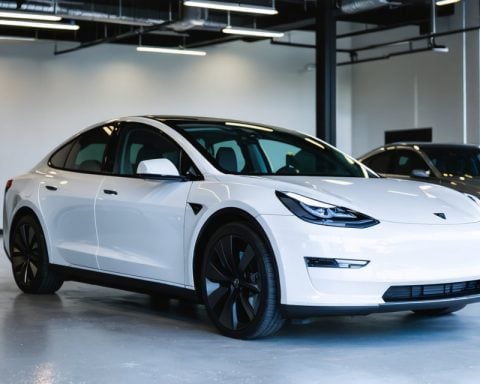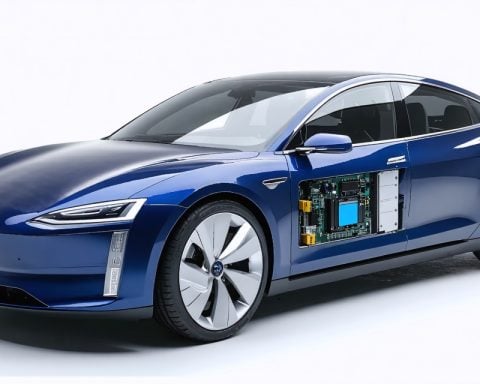In the latest push towards a sustainable future, the United Kingdom is ramping up its electric vehicle (EV) infrastructure, aiming to outpace traditional petrol stations within the next decade. This bold move aligns with the UK’s commitment to banning sales of new petrol and diesel cars by 2030, dramatically shifting the nation’s automotive landscape.
Innovative Charging Solutions
Recent governmental initiatives include the development of cutting-edge charging technology that promises to revolutionize the UK’s roadways. These initiatives focus on high-efficiency, ultra-rapid charging stations that are not only faster but also more user-friendly. This includes partnerships with EV innovators to deploy wireless charging pads and solar-powered charging stations, reducing reliance on fossil fuels even further.
Urban and Rural Transformation
With smart city projects underway, urban areas are set to see a network of integrated charging points seamlessly integrated into the existing landscape. In contrast, rural regions are receiving attention with plans to ensure that electric vehicle adoption is not an exclusively urban affair. The government aims to install charging stations at every 20-mile interval on main roads, breaking down barriers to EV ownership.
Economic and Environmental Impact
This transition is expected to significantly boost the British economy by creating thousands of green jobs and encouraging the growth of local tech startups. Moreover, it heralds promising environmental benefits, aiming for a substantial reduction in carbon emissions. As the UK positions itself as a leader in the EV market, the next few years could mark a turning point in the nation’s commitment to a cleaner, greener future.
Why the UK is Leading the Charge in Electric Vehicle Infrastructure
The UK’s quest for a sustainable future is setting a global precedent with ambitions to surpass the number of traditional petrol stations with electric vehicle (EV) charging points by the end of the decade. As part of this transformative journey, the government is championing various initiatives designed to elevate the country into a leader in electric mobility. This transition aligns seamlessly with the impending 2030 ban on new petrol and diesel car sales, setting the stage for a groundbreaking shift in the automobile industry.
Pros and Cons of EV Infrastructure Expansion
Pros:
– Efficiency and Speed: New ultra-rapid charging stations reduce downtime significantly, making EVs even more convenient for everyday use.
– Job Creation: The initiative is projected to create a vast array of green jobs, stimulating the economy while fostering technological advancements.
– Environmental Benefits: With a focus on renewable energy sources, the push will likely result in considerable reductions in carbon emissions.
Cons:
– Upfront Costs: Initial investment in infrastructure development is high, and this cost may be reflected in tax increments or governmental reallocation of funds.
– Hesitant Adoption: Some consumers remain skeptical about the range and charging availability of EVs, slowing down immediate adoption rates.
– Technological Barriers: As charging technology is still evolving, some regions may encounter compatibility issues with older EV models.
Economic Insights and Market Predictions
The UK is poised to see a substantial boost in its economy through the expansion of EV infrastructure. Analysts predict that as the charging network becomes more widespread, the demand for electric vehicles will rise significantly, subsequently catalyzing the growth of local tech startups focused on green technology. By becoming an early leader in the sector, the UK is likely to attract international investments and export opportunities, further solidifying its position in the global EV market.
Innovations in Charging Technology
As part of the push towards efficient charging solutions, the UK is investing in breakthroughs such as wireless charging pads and solar-powered stations. These innovations not only promise faster and more convenient charging but also align with the country’s sustainability goals by reducing dependency on the grid and fossil fuels.
Safety and Security Aspects
There are concerted efforts to ensure the robustness and cybersecurity of the new EV infrastructure. New security protocols are being embedded into charging stations to prevent data breaches and unauthorized access, providing users with a safe and secure charging experience.
Sustainability Trends
The UK’s integration of solar energy into charging stations underscores a broader trend towards sustainable practices across various sectors. This innovation reflects a growing alignment of technological advancements with environmental stewardship, setting a standard for future infrastructure projects globally.
For more insights on how these advancements are reshaping the UK’s automotive landscape, visit the UK Government’s official website.













